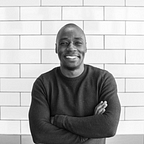How do I know User Experience Design (UXD)is for me?
You’ve been reading up on User Experience Design (UXD), trying to work out if this is a career path for you. All the articles that you find are quite technical, instead of helping, end up confusing you even more. Rest easy fellow reader, I plan to make this read as easy and straightforward for you as humanly possible. My intention is to not educate you on all the tools and techniques of UX design — there are plenty of articles out there for that. I am more interested in sharing the qualities I think make someone a good UX designer. My hope is that by the end of this article, you at least know whether you want to get into UXD and be part of this continuously evolving field.
Assumptions that I have made about you:
So, I’ve made a couple of assumptions about the type of person reading this right now namely;
1. You already have an understanding of UX and how it fits into product development.
2. You’re trying to understand what qualities make a good UX designer.
3. You’re interested in understanding if this is a career path for you.
If these are true for you, then please proceed reading.
Qualities that make a good UX Designer:
Let me start off by saying there is f*ck all research backing this up. This is purely from my own experience from observing and working with designers, extracting qualities I felt made them good at their job — qualities that I have also adapted in my own ways of working. So take what you take from this, and leave out what does not work for you.
- Thriving in ambiguity
As a UX designer, you will always face ambiguity in one form or another in any project. You will be in projects where the problem is vague, you are not sure who the customer is, you are not sure what the business objectives are, or what the solution will be — you’ll be building the plane as you fly my friend. This comes with the job, and if this excites you more than scare you away, then you’re halfway there ;)
2. Find people intriguing
There is no escaping people in this career and there shouldn't be. In most cases, you’re going to be solving people problems with people, and a by-product of that can be a tech solution, streamlined process, or physical object. The idea is to embrace people with their weaknesses and strengths, to “empathise” with them, and walk in their shoes. Only when you really understand the problems they face, have clear and constant communication with them, have tried your best to experience those problems yourself, and then co-create together — valuable solutions to those problems will arise.
3. Ability to adapt
Oh my friend things will change. One piece of information or oversight can have you starting an entire project over. Timelines that seemed fixed will suddenly change, stakeholders in the project will change, budgets will change. This is what you’re going to be dealing with, it is inevitable. The best you can do as a UX designer is to plan on what you know and should things change, for you to adjust your plans accordingly.
4. Processes are there to aid, but critical thinking is priceless
There sometimes is a lot of talk around design processes, and prescribed processes that are supposed to help designers create better solutions. There is great value in this of course, but you must understand some problems will require you to come up with your own approach. Critically thinking through what you are trying to achieve, about problems you are solving, and then tweaking your approach accordingly — is a very, very valuable quality for any designer.
5. Willingness to constantly upskill
UXD as a discipline is still maturing, and the tools and skillsets required to be a good UX designer are constantly changing as well. It is important to embrace new tools that can help you achieve your objectives, even with new ideas or ways of thinking introduced in the industry. Again, not to blindly use something because other designers are using it but to understand what your objectives are and whether something can aid in achieving them.
There you have it, my friends, the qualities I truly believe make good UX designers. These have been from what I have observed from myself, from colleagues, and other designers with whom I have collaborated on projects with. Hard skills can be taught to anyone, that's not the issue. It's these “soft” skills or qualities that we as designers must strive for, these human qualities that without — why even get into UX at all?. I hope I have at least shed some light on your conundrum — whether if UXD is for you, and I hope that these qualities have resonated with you and have excited you.
